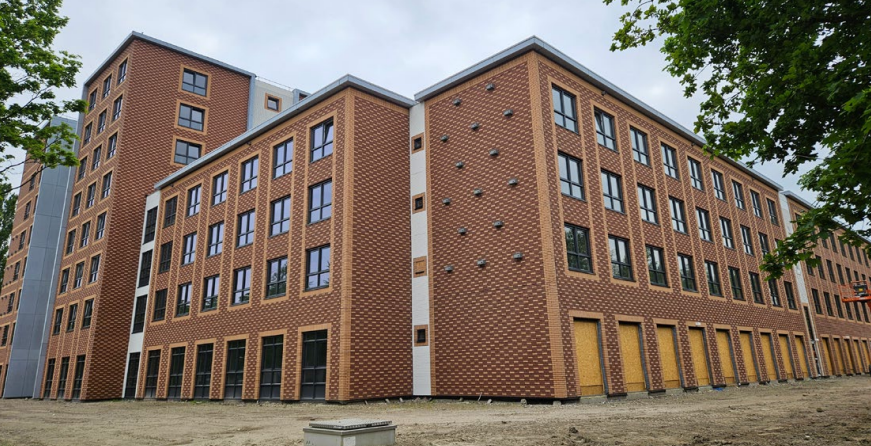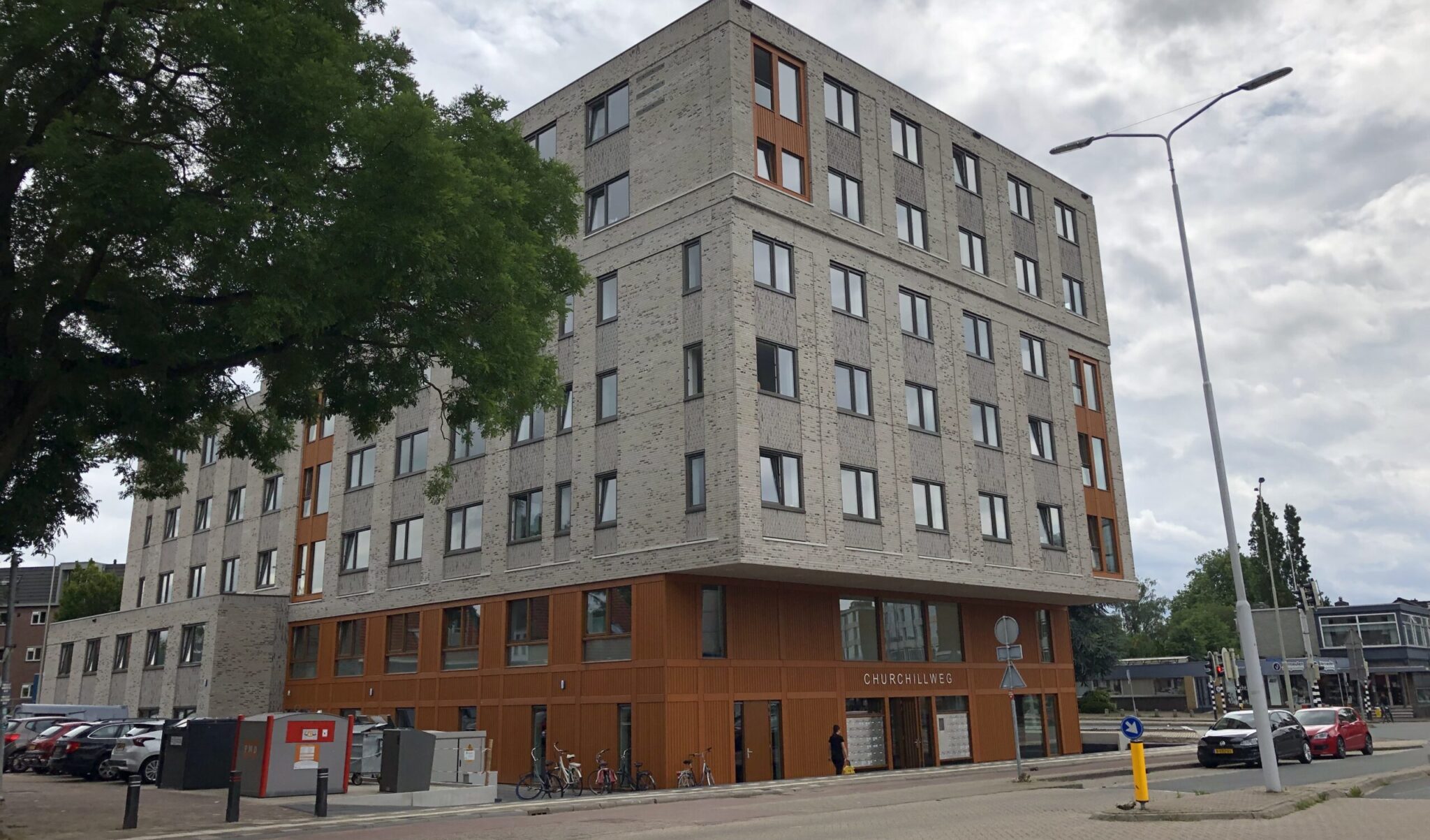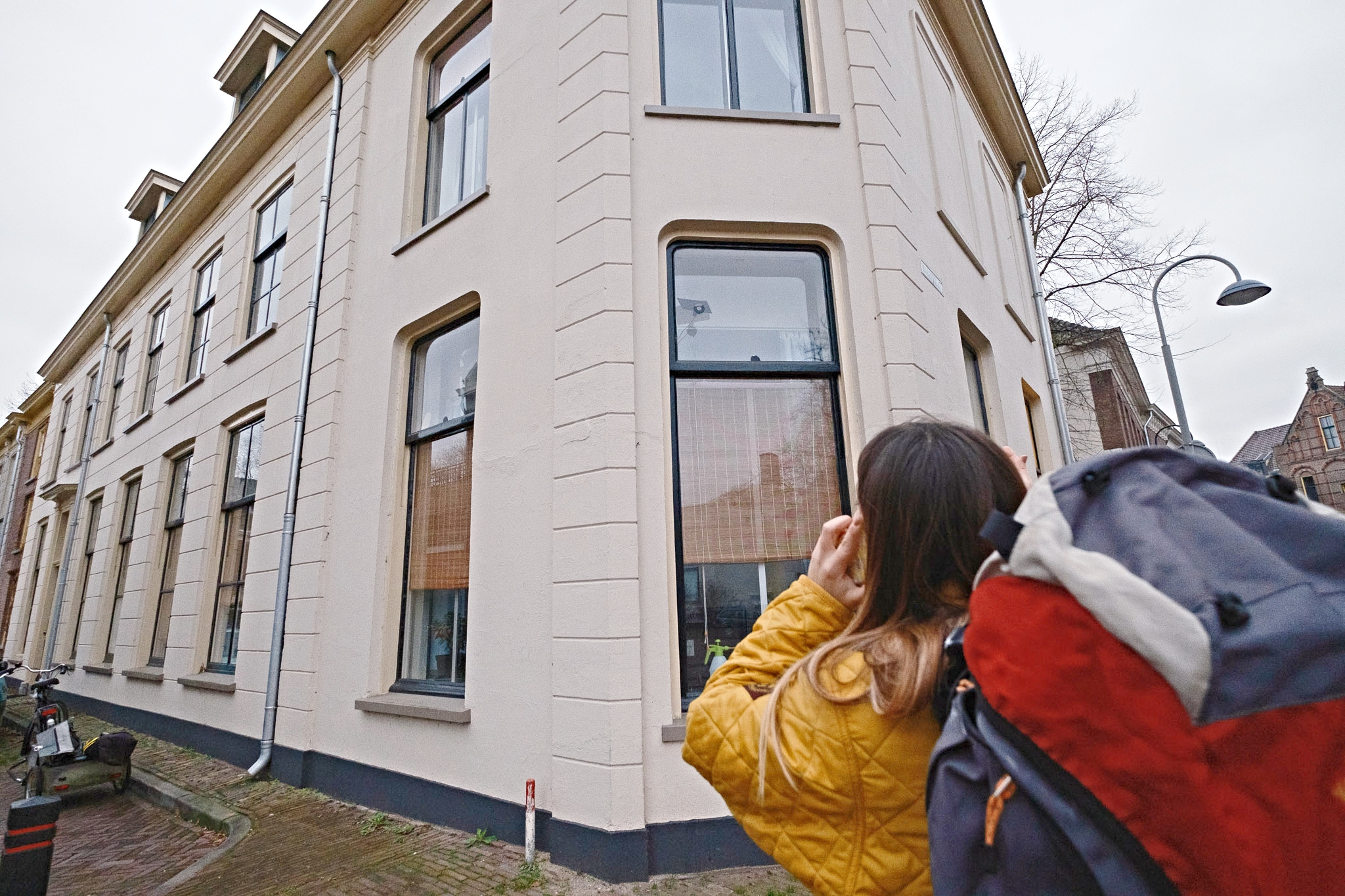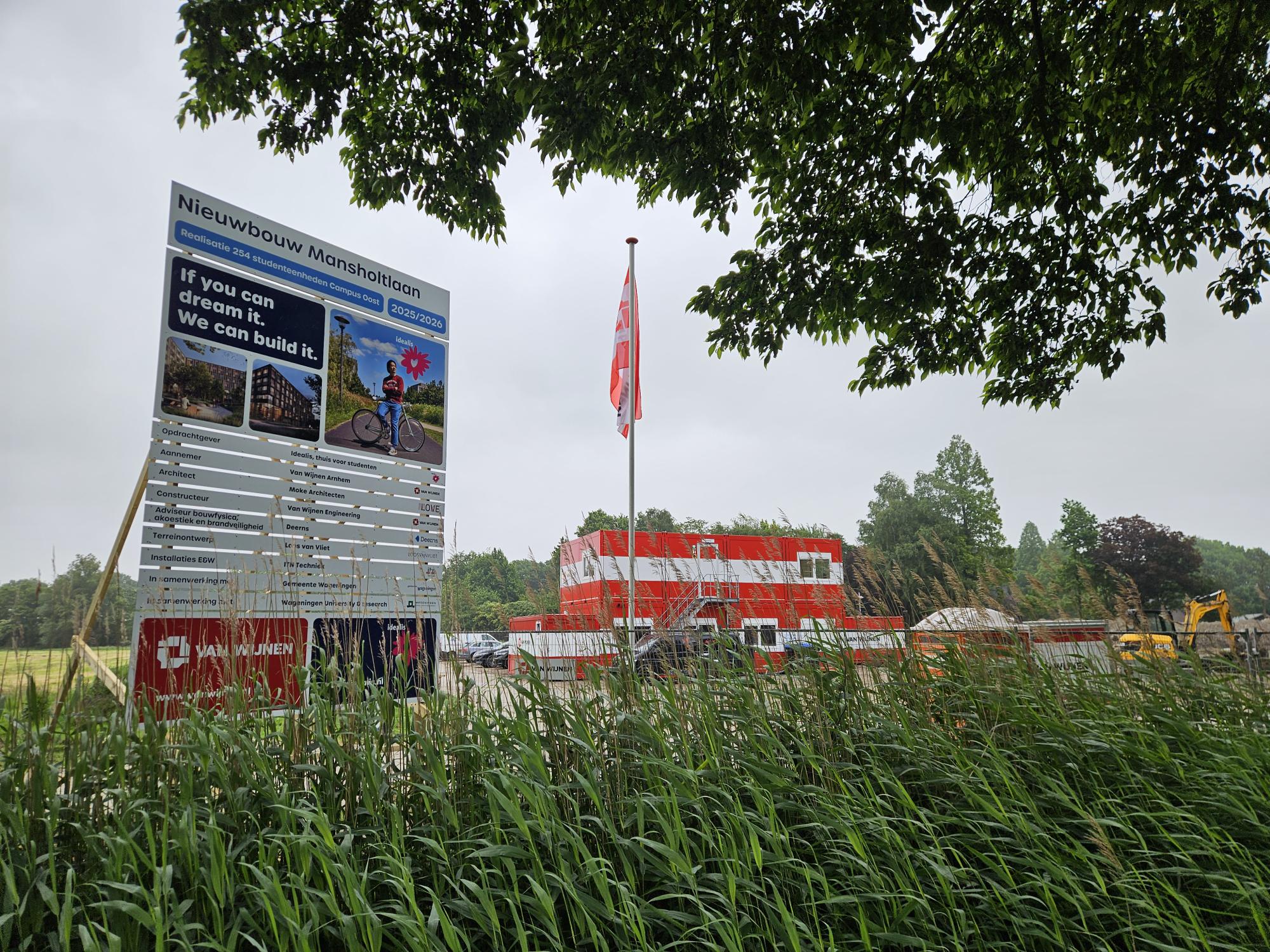Bart van As, director of Wageningen student accommodation provider Idealis, talks about room sharing, students’ changing preferences and a possible shortage soon of hundreds of student rooms.
If you cycle along Marijkeweg, you will see a brand-new student complex — M20 — on the site of the old vocational college that used to be there. Idealis director Bart van As is expecting the first occupants to be able to move in this September. More such developments are scheduled to follow M20, including new buildings on Mansholtlaan (250 rooms, planned delivery date 1 September 2026) and Bornsesteeg 2.0 (350 rooms, planned delivery date 1 September 2027). And the Asserpark and Dijkgraaf student flats are due to get a major refurbishment.
But Van As still has concerns. Despite the plans for refurbishments and new buildings, temporary housing solutions such as Haarweg 333 and Nieuwe Kanaal will soon no longer be available because the environmental and planning permits will expire. Van As: ‘We are working on several development projects but given the predicted student numbers, we are still looking at a shortfall of 300 to 600 rooms in five years’ time. That is why we are seeing whether we can extend some of the temporary environmental permits for student accommodation or convert them into permanent permits for housing. It is not yet clear whether that will be possible.’
Idealis aims to offer all first-year students a room by 1 May of their first year at university. Did you succeed this year?
‘On 1 May, there were 62 first-years who were still looking for a room. So we didn’t succeed this year but we got close. With the completion of M20, we expect to achieve that target next year.’
You expect a shortfall of 300 to 600 student rooms in five years’ time. That seems inconsistent with this aim.
‘It will be difficult. That is why we are asking the municipality to give us more space. But the municipal council is increasingly making noises about Wageningen being too “full” for students, and that we need to look at options for student housing in Renkum, Ede or Bennekom.
We want units with a maximum of six to seven occupants in our refurbishments and new buildings
Yet students are not keen on that at all. There is this impression that a lot of accommodation has already been built for students and now it’s the turn of ordinary people. They want more accommodation being built for the regular market.’
Hasn’t the municipality got a point there?
‘It’s not a question of either-or; you need to do both. Anyway, if you focus on new buildings for the regular market, that doesn’t necessarily stop students coming to the town. If we hadn’t built accommodation on Costerweg, perhaps the wealthier parents would have bought 60 regular flats for their children and friends. In other words, not building enough accommodation for students is not good for the regular market either.’
Major new constructions and refurbishment projects are planned for the next few years. How does Idealis decide what to spend money on?
‘Each year, we compile the student accommodation monitor together with the university and the municipality. In it, we analyse the predictions for student numbers according to various scenarios. Our collaboration with the university is reflected in the Mansholtlaan and Bornsesteeg 2.0 developments, both complexes that will be built on university land. In addition, all our tenants get a questionnaire every year asking them about their wishes and their assessment of their current accommodation.
Students don’t want accommodation in Renkum, Ede or Bennekom
We use this information as input when determining what to spend our money on. We are a foundation and are therefore not allowed to make a profit, so we invest that money in our priority areas: new construction, refurbishment and maintenance, and keeping rents affordable. There is a national points system that you can use to determine how much rent you can ask for a certain type of accommodation. At Droevendaal, the rent is 90 per cent of what we are allowed to ask, and it is sometimes only 80 per cent at older complexes. This is why Wageningen is still one of the most affordable places to live for students.’
In recent years, room sharing has been used as a temporary emergency solution for international students who were still without a room at the start of the academic year. Couldn’t you offer that permanently?
‘At Dijkgraaf, about 50 students shared a room. That was a bit improvised because the rooms weren’t designed for sharing. Room sharing affects the rest of the flat too, because you end up with more people sharing the kitchen, shower and toilet as well.That is not optimal in terms of the facilities.
The municipal council is making more noises about Wageningen being too “full” for students
At the same time, many students from the US, China or Southern Europe for example are used to sharing a room. We see a demand for this solution, in part because it is financially appealing for the tenants. That is why we are investigating whether we could offer some shared rooms for two to four occupants in the complex we will be building on Mansholtlaan. But the rooms and all the other facilities would then be designed to cope with this.’
Are students’ accommodation preferences changing in other ways too?
‘Definitely. One change is that students no longer want to share a unit with 10 to 18 people, like they do now at Dijkgraaf. That is why we are aiming for units with a maximum of six to seven occupants in our refurbishments and new buildings. When the units get bigger, no one feels the urge to take responsibility. It is also more difficult to “integrate”. People feel more of a bond with one another in a unit of six people, and they find it easier to hold one another to account.’

 The new studentcomplex M20 at the Marijkeweg. Photo Resource
The new studentcomplex M20 at the Marijkeweg. Photo Resource 

